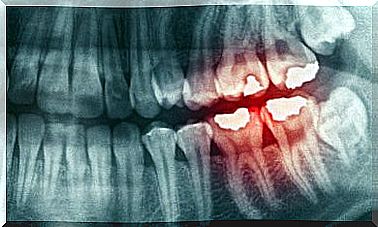Why Is Our Stomach Growling?

The wild animal in us usually announces itself when nobody should hear it: in meetings or other situations, when it is particularly quiet, then it growls: our stomach. We cannot control it, we cannot foresee it, we cannot prevent it. But why is our stomach growling ?
Movement makes the music
Our digestive tract is always on the move. Day and night, the esophagus, stomach and intestines contract and expand again without ceasing. Porridge, gastric juices, secretions from the pancreas and bile – all of this is constantly being processed and transported in this way.
If we have not eaten any food for several hours , it develops into a kind of sound body, because there is a lot of air in its cavity.
When the walls continue to contract and then slacken again, the air and water in the stomach start to vibrate, similar to blowing a horn: the stomach growls.

How is it amplified?
When you think of something delicious or have an appetite for something, the thought of it alone can move mountains – or your digestive tract in anticipation. The more pronounced the appetite, the greater the likelihood that your brain will tell your stomach: “Attention, work is coming soon!”
As long as you haven’t eaten, only air can move in it and it growls. A growling stomach is not always a sure sign of real hunger. Appetite for something that literally “makes your mouth water” turns our stomach into a sound body and makes it growl.

Growling from the intestines
But other organs can also be responsible for the growl. Sometimes the sound can also come from the intestines. If the noises come from the intestines, they usually come from the small intestine, rarely from the lower intestines.
One then speaks of “grumbling intestines”. The development is the same: the intestine is also part of the digestive tract and is therefore constantly in motion. Liquids and air contained therein are set in vibrations when moving and then cause grumbling or growling noises.
prevention
Some people are uncomfortable with growling. In some situations (job interview, church etc.) it can also be really embarrassing. If you are afraid of attracting attention in such situations, the following tips can help you:

Chewing gum out of your mouth!
Chewing gum increases the flow of saliva. This leads your stomach to believe that you are eating or that you will soon. He gets into increased movement activity. When the stomach is empty, it starts to growl. Chewing gum has a similar effect to thinking about delicious food or having a big appetite at the sight of a delicious meal.
Air out!
Sometimes it gurgles because you chewed and swallowed too hastily while eating and so much air got into your stomach. If so, try to artificially burp. To do this, open your mouth as if you were breathing in, but close your windpipe.
If you can burp this artificially, just do it, but with your mouth closed so no one will hear it. This is a very useful technique and it actually works. It releases gas and is sometimes the solution to annoying growling.

Eat in!
Even a little something like a pretzel, a dry roll from the bakery or a banana ensures that your stomach is no longer that empty and that it has something else to do instead of growling until the next “real” meal.
In exam situations, job interviews and other situations in which a “calm head” is required, such a snack prevents you from falling into hypoglycaemia and becoming even more excited and shaky.









